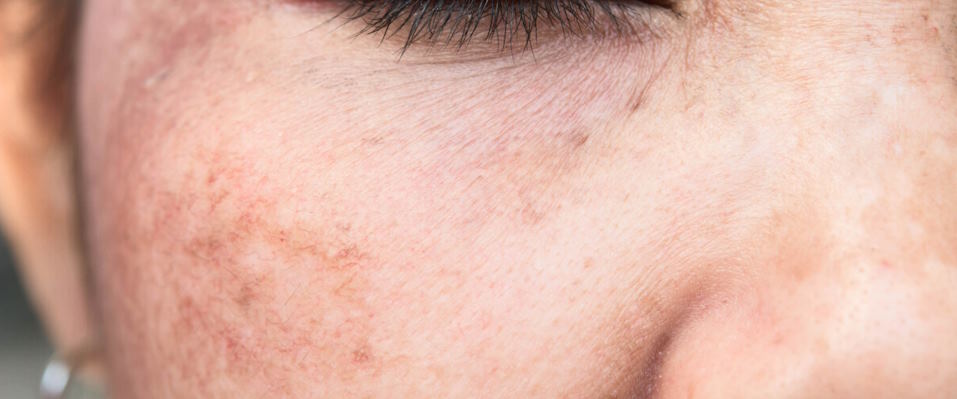The battle against hyperpigmentation stands as a common yet formidable challenge. Dark spots, uneven skin tone, and the lingering aftermath of inflammation can cause real discomfort.
How to address and prevent hyperpigmentation?
Understanding Hyperpigmentation
Hyperpigmentation manifests in various forms, each requiring a nuanced approach. Sunspots, melasma, and post-inflammatory hyperpigmentation present distinct challenges that necessitate targeted solutions.
Delve into the root causes of hyperpigmentation to comprehensively address the issue. Explore the impact of sun exposure, inflammation, hormonal fluctuations, and genetic predispositions, creating a foundation for a tailored skincare strategy.
Addressing Existing Hyperpigmentation
Incorporate potent ingredients into your skincare routine to counteract hyperpigmentation. Vitamin C, celebrated for its brightening effects, works as a powerful antioxidant. Alpha arbutin targets melanin production, while niacinamide addresses inflammation and promotes a more even skin tone.
Employ alpha hydroxy acids (AHAs) and beta hydroxy acids (BHAs) for gentle yet effective exfoliation. These compounds encourage the turnover of skin cells, aiding in the gradual fading of hyperpigmented areas.
Explore the benefits of retinol or retinoid creams, which stimulate cell turnover and contribute to the gradual reduction of hyperpigmentation.
Make daily sun protection a top priority by using a broad-spectrum SPF to safeguard your skin against the harmful effects of UV rays. Consistent sunscreen application prevents further darkening of hyperpigmented regions.

Hyperpigmentation-Targeted Skincare Process
Choose a cleanser specifically suited to your skin type, ensuring a fresh canvas for your following skincare routine. Nurture a healthy and balanced complexion by preserving skin hydration with a lightweight, non-comedogenic moisturizer.
Apply serums enriched with targeted ingredients in a layered fashion, ensuring effective absorption for each. The key to achieving optimal results is consistent adherence to this skincare routine.
Targeted Treatments for Specific Hyperpigmentation Types
Melasma
Consult a dermatologist for personalized treatments, such as prescription creams or laser therapy, to address melasma effectively.
Post-Inflammatory Hyperpigmentation (PIH)
Address the root causes of inflammation and consider professional interventions, such as chemical peels or targeted topical treatments.
Consult a Skincare Professional
Seek the expertise of a dermatologist for personalized advice and targeted treatments. Professional insights can elevate your skincare regimen to address specific concerns effectively.
Effectively managing and preventing hyperpigmentation requires a thorough and patient approach. Integrating successful skincare practices with lifestyle adjustments forms a holistic strategy to attain and sustain an even, radiant complexion.


